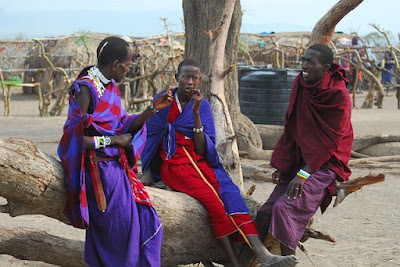Tribal Empowerment: Preserving Heritage and Fostering Progress
Introduction
Tribal empowerment is a significant endeavor that aims to uplift and support indigenous communities worldwide. It involves providing these communities with the tools, resources, and opportunities they need to shape their own destinies, preserve their unique cultural heritage, and foster progress in their societies.
Understanding Tribal Empowerment
Tribal empowerment entails granting autonomy and agency to indigenous communities, allowing them to make decisions that affect their lives directly. By involving tribes in decision-making processes, their perspectives and needs are acknowledged, leading to more inclusive and sustainable development.
The Historical Context of Tribal Communities
Tribal communities have a rich and diverse history, with each group possessing unique traditions, customs, and languages. However, throughout history, many tribal communities have faced challenges such as displacement, marginalization, and loss of land and resources.
The Role of Education in Empowering Tribals
Education plays a vital role in empowering tribal communities. By ensuring access to quality education, tribes can equip their members with knowledge and skills that open doors to better opportunities. Education also helps preserve their cultural identity by passing down traditional knowledge.
Economic Empowerment of Tribal Communities
Sustainable economic empowerment is crucial for tribal communities' growth and self-reliance. By supporting sustainable livelihood options and entrepreneurship, tribes can build economic resilience while maintaining their connection with nature and traditional practices.
Securing Land Rights for Tribal Empowerment
Land rights are fundamental to tribal empowerment. Many indigenous communities have faced land alienation, leading to the loss of their ancestral territories. Securing land rights ensures their cultural preservation and continued connection to their land and resources.
Cultural Preservation and Empowerment
Preserving tribal culture is essential for maintaining their identity and sense of belonging. Efforts to revive and celebrate traditional practices, rituals, and art forms empower tribes and instill pride in their cultural heritage.
Gender Equality and Empowerment Among Tribes
Promoting gender equality within tribal communities is crucial for inclusive development. Empowering tribal women and addressing gender disparities lead to more balanced and harmonious societies.
Healthcare Access and Empowerment for Tribes
Improving healthcare access and services for tribal communities is essential to address health challenges specific to their environments. It ensures better well-being and enhanced quality of life.
Government Initiatives and Tribal Empowerment
Government policies and programs play a critical role in tribal empowerment. By designing inclusive policies and implementing them effectively, governments can contribute significantly to the upliftment of indigenous communities.
The Role of NGOs in Tribal Empowerment
Non-Governmental Organizations (NGOs) are essential partners in tribal empowerment efforts. They collaborate with communities to identify their needs and implement sustainable development projects.
Challenges and the Path Forward
Despite progress, tribal empowerment faces challenges such as bureaucratic hurdles, inadequate resources, and cultural assimilation pressures. The path forward lies in collaborative efforts, sustainable development practices, and preserving traditional wisdom.
Conclusion
Tribal empowerment is a journey towards preserving cultural heritage, fostering progress, and ensuring the inclusion of indigenous communities in the global narrative. By valuing their unique identities, providing access to education, securing land rights, promoting economic sustainability, and supporting healthcare initiatives, we can create a world that celebrates the rich diversity and contributions of tribal communities. The collective efforts of governments, NGOs, and society at large are crucial to empowering tribes and nurturing a future that cherishes their wisdom, traditions, and aspirations.
FAQs:
What is tribal empowerment?
Tribal empowerment means giving autonomy and agency to indigenous communities, enabling them to make decisions that impact their lives directly.
Why is tribal empowerment important?
Tribal empowerment is crucial as it helps preserve their cultural heritage while fostering progress and inclusivity in their societies.
What challenges do tribal communities face?
Tribal communities have historically faced challenges like displacement, marginalization, and loss of land and resources.
How does education empower tribes?
Education empowers tribes by providing knowledge and skills, opening doors to better opportunities, and preserving their cultural identity.
Why is cultural preservation vital for tribes?
Cultural preservation maintains tribal identity and fosters pride in their heritage, passing down traditional knowledge to future generations.














No comments:
Post a Comment
Please do not enter any spam link in the comment box